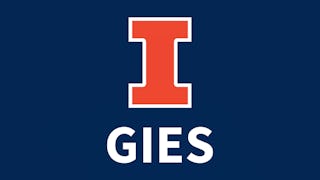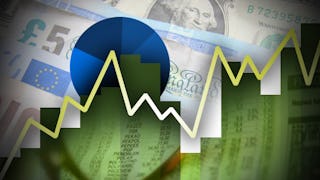All goods and services are subject to scarcity at some level, which requires that society develop some allocation mechanism to determine who gets what. Over recorded history, these allocation rules were usually command based, meaning that the king or the emperor would decide. In contemporary times, most countries have turned to market-based allocation systems. In markets, prices act as rationing devices, encouraging or discouraging production and encouraging or discouraging consumption to find an equilibrium allocation of resources. To understand this process, businesses construct demand curves to capture consumer behavior and consider supply curves to capture producer behavior. The resulting equilibrium price “rations” the scarce commodity.

Enjoy unlimited growth with a year of Coursera Plus for $199 (regularly $399). Save now.

Firm Level Economics: Consumer and Producer Behavior
This course is part of Managerial Economics and Business Analysis Specialization

Instructor: Larry DeBrock
105,051 already enrolled
Included with
(2,509 reviews)
What you'll learn
Describe consumer behavior as captured by the demand curve and the supply curve.
Explain the impact of taxes and price controls on market equilibrium.
Explain elasticity of demand.
Describe cost theory and how firms optimize given the constraints of their own costs and an exogenously given price.
Skills you'll gain
Details to know

Add to your LinkedIn profile
14 assignments
See how employees at top companies are mastering in-demand skills

Build your subject-matter expertise
- Learn new concepts from industry experts
- Gain a foundational understanding of a subject or tool
- Develop job-relevant skills with hands-on projects
- Earn a shareable career certificate

There are 4 modules in this course
You will become familiar with the course, your classmates, and our learning environment. The orientation will also help you obtain the technical skills required for the course. The fundamental problem of scarcity challenges us to think about an allocation mechanism to determine what is produced and who consumes it. We will discuss scarcity and allocation mechanisms. In this course, we will focus on markets and prices as the solution to this resource allocation problem.
What's included
9 videos8 readings4 assignments1 discussion prompt1 plugin
Markets are frequent targets of governments. This module will introduce government policy intervention into the market. This intervention can be direct control of prices or it could be indirect price pressure through the imposition of taxes or subsidies. Both forms of intervention are impacted by elasticity.
What's included
10 videos2 readings4 assignments
This module will introduce cost theory. Firms are interested in producing profits, which are the residuals when costs are subtracted from revenue. Earlier modules constructed demand curves. They give us an idea of how many units of product we can sell at different prices; this would be firm revenue. We will work to understand inputs, production, and costs.
What's included
14 videos2 readings3 assignments
The firm goal of profit maximization requires an understanding of costs and revenues. In this module, we will see how a firm optimally responds to a given market price by finding the profit maximizing output. The level of profits at this maximum profit point will help determine short run equilibrium.
What's included
10 videos5 readings3 assignments1 peer review1 plugin
Earn a career certificate
Add this credential to your LinkedIn profile, resume, or CV. Share it on social media and in your performance review.
Build toward a degree
This course is part of the following degree program(s) offered by University of Illinois Urbana-Champaign. If you are admitted and enroll, your completed coursework may count toward your degree learning and your progress can transfer with you.¹
Instructor

Offered by
Explore more from Finance
 Status: Free Trial
Status: Free TrialUniversity of Illinois Urbana-Champaign
 Status: Free Trial
Status: Free TrialIllinois Tech
 Status: Free Trial
Status: Free TrialRice University
 Status: Preview
Status: PreviewUniversity of Rochester
Why people choose Coursera for their career




Learner reviews
2,509 reviews
- 5 stars
85.43%
- 4 stars
12.37%
- 3 stars
1.27%
- 2 stars
0.23%
- 1 star
0.67%
Showing 3 of 2509
Reviewed on Jul 10, 2020
Everything is fine but regarding my economics subject, where i got some lagg while understanding because somewhat the examples are varies from one country to another country.
Reviewed on Feb 3, 2019
Absolutely made me understand firm level economics concepts. Good practice and foundation building.Professor is great and engages will with real life examples and connections.
Reviewed on Aug 12, 2020
Larry is an excellent teacher--clear, concise, and entertaining. This was a refresher course for me (I majored in Econ at Berkeley 40 yrs ago) and reminded me why I chose to study it!
Frequently asked questions
Once you enroll for a Certificate, you’ll have access to all videos, quizzes, and programming assignments (if applicable). If you choose to explore the course without purchasing, you may not be able to access certain assignments.
You will be eligible for a full refund until 2 weeks after your payment date. You cannot receive a refund once you’ve earned a Course Certificate, even if you complete the course within the 2-week refund period. View our full refund policy.
Yes! Coursera provides financial aid to learners who would like to complete a course but cannot afford the course fee. To apply for aid, select "Learn more and apply" in the Financial Aid section below the "Enroll" button. You'll be prompted to complete a simple application; no other paperwork is required.
More questions
Financial aid available,





